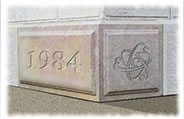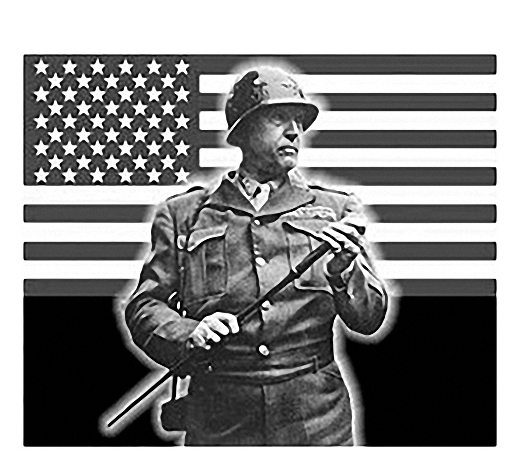Of Course, it’s Acting
The “Back to Basics” Series
General Patton: “If we’re not victorious, let no one come back alive!!”
Lt. Col. Codman: “You know something General? Sometimes they can’t tell when you’re acting and when you’re not.”
Patton: “It’s not important for them to know. It’s only important for me to know!”
—George C. Scott as General George S. Patton
“Patton” (1970)
Directed By: Franklin J. Schaffner
Production Company: Twentieth Century Fox
Story and Screenplay By: Francis Ford Coppola and Edmund H. North
Acting? Of Course, it’s Acting! But it’s genuine nonetheless.
Acting is the bridge between the spirit and the physical. Acting and Action are required to provoke a result, a reaction, a response. If you don’t act, nothing will occur. So, you must act. The challenge: Calibrate your actions so as not to underwhelm or overwhelm your listeners. The absence of this skill results in acting badly or bad acting. The presence of this skill connotes acting well or a great performance.
Bad Acting
“You are going to try and turn me into something I’m not!”
— Anonymous Participant Pre-call
Many people resist going to training, fearing that something “false and unnatural” i.e., “Acting” will be imposed on them. They are uncomfortable thinking that they’ll be expected to generate unreal emotions, or turn on the histrionics. So, they stay home and avoid the terrible training. Then, to protect themselves from unwelcome interaction in meetings, they sit quietly at the table, hands folded in their laps, looking gravely at their computers. Well, no danger of over-acting there. But if ever there was an example of “bad acting” — this is it.
Who would want to attend that meeting? You delivered the entire presentation in a painful monologue. How do we know which ideas you find interesting and valid? Is there a code? How do we tell what you think we should do? Sure, you said something about a recommendation; but the way you said it indicated that you didn’t really believe we should act on it — not for a second. The delivery fell flat. Bad acting, in a nutshell.
It’s a riddle, isn’t it? We protect ourselves from “seeming false” or doing anything bad by not doing anything at all… and we come off in the perception of our listeners as boring, dull, disinterested and listless — over-controlled even.
Good Acting
Good Acting is how one makes the “self” known.
An act. A single act, a gesture perhaps — is how you signal an intention or a perspective. We know it’s you by checking your actions and your speech patterns against what we already know of you. When we register what you say with how you appear, we get a conclusion: “Hey, it’s really you and you’re genuine!” OK then, we might just take you seriously and respond in kind.
Action and “acting” are the beginning of course, but a series of aligned actions can demonstrate a continuity of purpose. A year of continuity demonstrates sincerity, honesty and commitment. A lifetime of continuity with thoughts, words and deeds aligned, is integrity.
Acting is how you tell us what you think, what you want and how badly you want it. It can be false (witness the summer of our discontent in Washington, DC) but it can also be true, honest, and deeply genuine.
Make it so. And make yourself — known.
Training and practice
“Acting is not being emotional but being able to express emotion.”
—Kate Reid, Canadian Actress (1930-1993)
Good acting is learned. And practiced, and polished. It doesn’t happen “naturally.” No, it happens because you think it’s worth learning. TRUTH: If you want people to attend to your remarks, you must attend to how you deliver them. Listeners have an internal bull**** detector that reacts to dis-alignment between content and delivery. “I heard what you said, but I didn’t get the impression you really meant it.”
You have to want people to understand not only the pure content of your message, but the intentions behind it and your degree of desire to be understood. Acting makes the connection.
Take the course. Practice. Rehearse. Then do it some more — until it works and “sings!” Sure, the learning is going to be a little edgy and a little weird, that’s what learning feels like. After the training, your “acting” will become more and more genuine, until what was “learned behavior” in the beginning becomes and appears as natural and as genuine as breathing.
All professional skills — though they appear eventually to be natural and genuine — first had to be learned.
Applications
1. Personally
The calibration of manifestation (Telling it Like it Is!) is a requirement for being taken seriously. If someone shouts everything, we think they’re annoying. If someone whispers everything, perhaps a basket case. So, get some training and get your “act” together.
2. At Home
Think before you speak, before you raise your voice — or lower it. What you say has an impact, but how you say it impacts your believability and the sense that others have of your sincerity. Take it seriously, and you’ll be taken seriously.
3. At Work
Of course, it’s drama. It’s just better if you underplay it a little. Be really organized but put it across as if you just got it together in the hallway. People will shake their heads and wonder how you got your columns aligned and presented in such a quiet way. “No Drama” is drama — but really classy drama.
It’s all acting. Lousy Acting leaves us sad to be in the room as it goes down. Good Acting makes us take you seriously enough to follow — and even elect you. Decide to leave people moved, proud and inspired when you speak. Then go attain that result. It may take years, but it’ll be worth it.
Of course, it’s “acting.” But it’s genuine — and so are you.
Subscribe to our Newsletter


